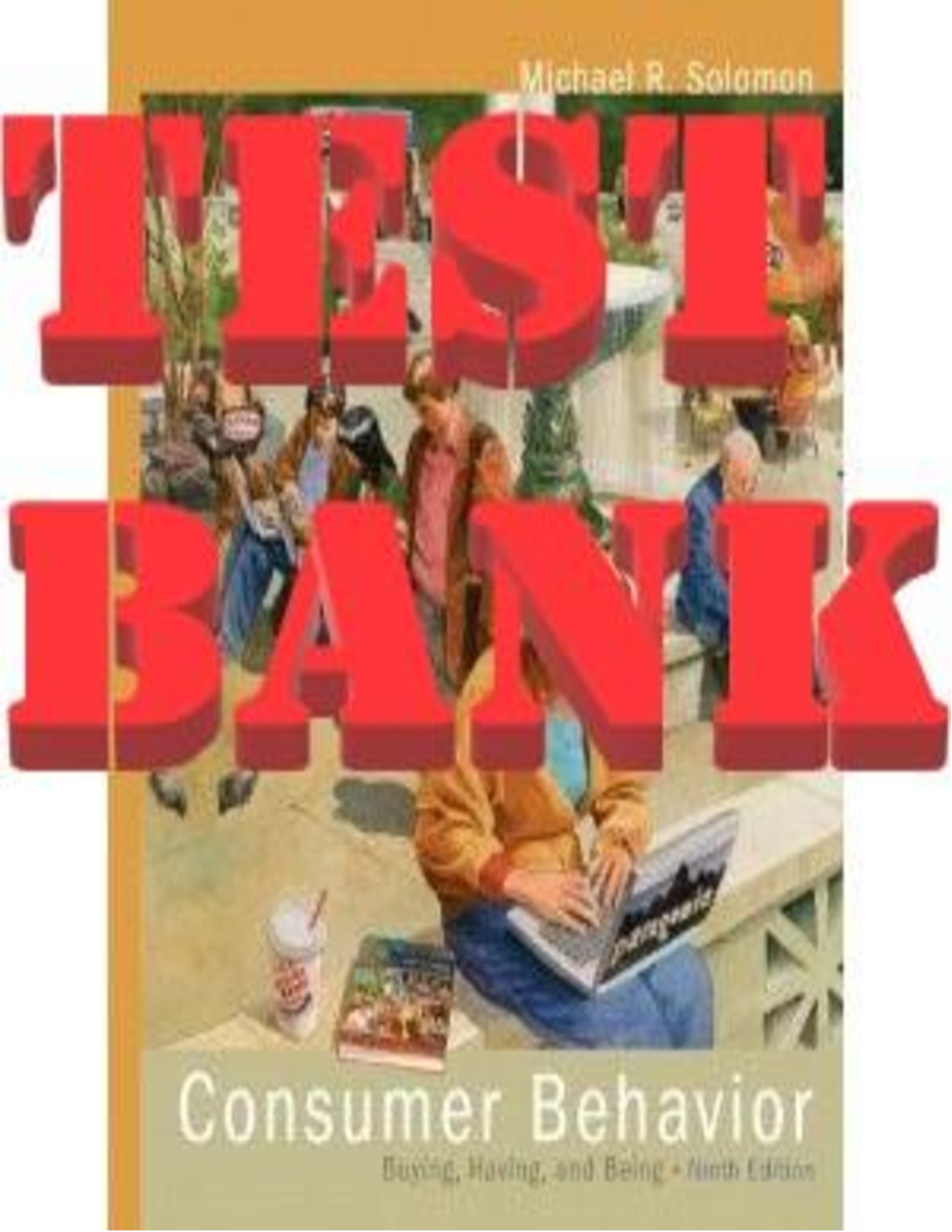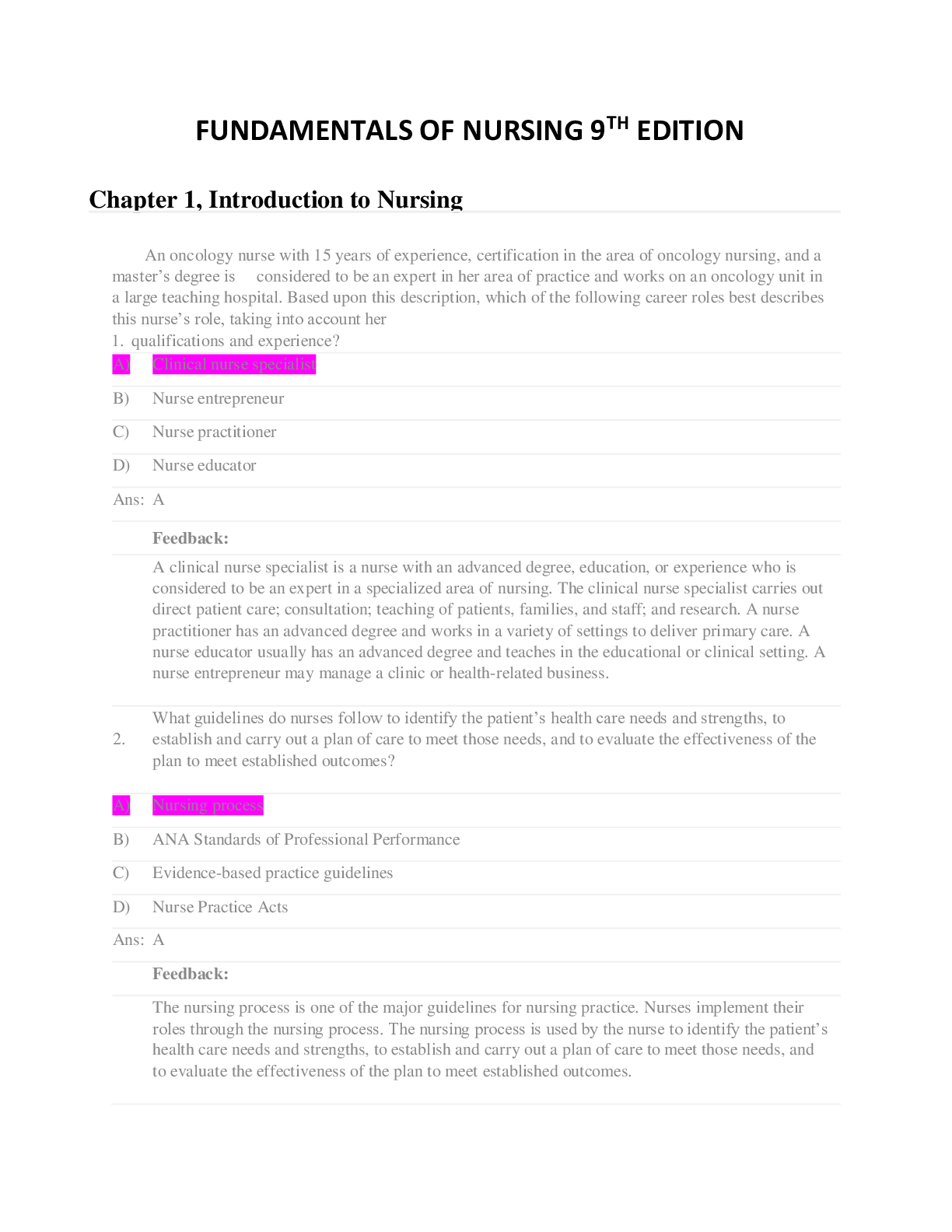Economics > TEST BANKS > PRINCIPLES OF MACROECONOMICS 9th Edition by Prentice Hall . Test Bank (All)
PRINCIPLES OF MACROECONOMICS 9th Edition by Prentice Hall . Test Bank
Document Content and Description Below
Chapter 1 The Scope and Method of Economics 1.1 Why Study Economics? 1 Multiple Choice 1) Which of the following is NOT listed in the book as a reason to study economics? A) to learn a way ... of thinking B) to understand society and global affairs C) to be an informed voter D) to learn how to make lots of money Answer: D Diff: 1 Topic: Why Study Economics? Skill: Fact 2) Among the fundamental concepts in economics are A) opportunity cost. B) marginalism. C) efficient markets. D) all of the above Answer: D Diff: 1 Topic: Why Study Economics? Skill: Fact 3) Which of the following is the best definition of economics? A) the study of how individuals and societies choose to use the scarce resources that nature and previous generations have provided B) the study of how consumers spend their income C) the study of how business firms decide what inputs to hire and what outputs to produce D) the study of how the federal government allocates tax dollars Answer: A Diff: 2 Topic: Why Study Economics? Skill: Definition 4) The rise of the modern factory system in England during the late eighteenth and early nineteenth centuries is known as the A) Great Migration. B) Industrial Revolution. C) Wealth of Nations. D) Dark Ages. Answer: B Diff: 1 Topic: Why Study Economics? Skill: Fact 1 5) Which of the following statements is NOT correct? A) Economics is a behavioral science. B) In large measure, economics is the study of how people make choices. C) If poverty was eliminated there would be no reason to study economics. D) Economic analysis can be used to explain how both individuals and societies make decisions. Answer: C Diff: 1 Topic: Why Study Economics? Skill: Fact 6) The study of economics A) is a very narrow endeavor. B) is a way of analyzing decision-making processes caused by scarcity. C) is concerned with proving that capitalism is better than socialism. D) focuses on how a business should function. Answer: B Diff: 2 Topic: Why Study Economics? Skill: Definition 7) Sunk costs are A) costs that cannot be avoided, because they have already been incurred. B) the costs of what we give up when we make a choice or a decision. C) the additional costs of producing an additional unit of a product. D) the additional costs of consuming an additional unit of a product. Answer: A Diff: 2 Topic: Why Study Economics? Skill: Definition 8) Suppose that you purchased a ticket to a jazz festival for $100 a month ago. Last week someone invited you to a hockey game on the same night as the jazz festival. You would much rather go to the hockey game than the jazz festival. You have tried unsuccessfully to sell the jazz festival ticket. Which of the following statements regarding this situation is correct? A) The $100 you paid for the jazz festival ticket is relevant to the decision, as this represents the opportunity cost of attending the hockey game. B) You should base your decision on whether or not the hockey game will provide you with more than $100 in satisfaction. C) The $100 you paid for the jazz festival ticket should be irrelevant in your decision making, because it is a sunk cost. D) The $100 jazz festival ticket should be irrelevant in your decision making, because it represents the marginal cost of attending the hockey game. Answer: C Diff: 2 Topic: Why Study Economics? Skill: Conceptual AACSB: Reflective Thinking 2 9) You have decided that you want to attend a costume party as Ironman. You estimate that it will cost $40 to assemble your costume. After spending $40 on the costume, you realize that the additional pieces you need will cost you $25 more. The marginal cost of completing the costume is A) $15. B) $25. C) $40. D) $65. Answer: B Diff: 2 Topic: Why Study Economics? Skill: Analytic AACSB: Analytic Skills 10) The concept of opportunity cost A) is relevant only to economics. B) can be applied to the analysis of any decision-making process. C) applies to consumers but not to firms. D) refers only to actual payments and incomes. Answer: B Diff: 2 Topic: Why Study Economics? Skill: Conceptual AACSB: Reflective Thinking 11) Opportunity cost is A) that which we forgo, or give up, when we make a choice or a decision. B) a cost that cannot be avoided, regardless of what is done in the future. C) the additional cost of producing an additional unit of output. D) the additional cost of buying an additional unit of a product. Answer: A Diff: 2 Topic: Why Study Economics? Skill: Definition 12) The reason that opportunity costs arise is that A) an economy relies on money to facilitate exchange of goods and services. B) resources are scarce. C) there are no alternative decisions that could be made. D) people have limited wants. Answer: B Diff: 1 Topic: Why Study Economics? Skill: Fact 13) Which of the following is NOT an opportunity cost of attending college? A) the tuition you pay B) the income you could have earned if you didn't attend college C) the alternative uses of the time you spend studying D) the cost of the food that you consume while you are attending college Answer: D Diff: 3 Topic: Why Study Economics? Skill: Conceptual AACSB: Reflective Thinking 3 14) If your tuition is $5,000 this semester, your books cost $600, you can only work 20 rather than 40 hours per week during the 15 weeks you are taking classes and you make $15 per hour, and your room and board is $3000 this semester, then your opportunity cost of attending college this semester is A) $5,600. B) $5,900. C) $10,100. D) $11,600. Answer: C Diff: 3 Topic: Why Study Economics? Skill: Analytic AACSB: Analytic Skills 15) If your tuition is $25,000 this semester, your books cost $1,500, you can only work 20 rather than 40 hours per week during the 15 weeks you are taking classes and you make $15 per hour, and your room and board is $7,500 this semester, then your opportunity cost of attending college this semester is A) $26,500. B) $26,800. C) $31,000. D) $38,500. Answer: C Diff: 3 Topic: Why Study Economics? Skill: Analytic AACSB: Analytic Skills 16) If you own a building and you decide to use that building to open a book store, A) there is no opportunity cost of using this building for a book store because you own it. B) there is an opportunity cost of using this building for a book store because it could have been used in other ways. C) there are no sunk costs involved in this decision. D) the only cost relevant to this decision is the price you paid for the building. Answer: B Diff: 2 Topic: Why Study Economics? Skill: Conceptual AACSB: Reflective Thinking 17) You own the Star Wars six DVD set. The opportunity cost of watching these DVDs for the second time A) is zero. B) is one-half the cost of the DVDs, as this is the second time you have watched it. C) is the value of the alternative use of the time you spend watching the DVDs. D) cannot be calculated. Answer: C Diff: 2 Topic: Why Study Economics? Skill: Conceptual AACSB: Reflective Thinking 4 18) That which we forgo, or give up, when we make a choice or decision is called A) sunk cost. B) marginal cost. C) real cost. D) opportunity cost. Answer: D Diff: 1 Topic: Why Study Economics? Skill: Definition 19) Costs that cannot be avoided, regardless of what is done in the future, because they have already been incurred are A) total costs. B) sunk costs. C) marginal costs. D) allocative costs. Answer: B Diff: 1 Topic: Why Study Economics? Skill: Definition 20) If you can buy 9 DVDs for $126 or you could buy 10 DVDs for $130, then the marginal cost of the tenth DVD is: A) $4. B) $13. C) $14. D) $130. Answer: A Diff: 2 Topic: Why Study Economics? Skill: Analytic 21) If you eat at a sushi restaurant that charges $20 for its all you can eat sushi special, then the marginal cost of your 10th piece of sushi is A) zero. B) $2. C) $200. D) $2,000. Answer: A Diff: 2 Topic: Why Study Economics? Skill: Analytic AACSB: Analytic Skills 22) A market in which profit opportunities are eliminated almost instantaneously is A) a laissez-faire market. B) a capitalist market. C) a socialist market. D) an efficient market. Answer: D Diff: 2 Topic: Why Study Economics? Skill: Definition 23) If information is less costly and more easily available, then usually this A) makes markets more efficient. B) makes markets less efficient. C) increases profit opportunities. D) increases the opportunity cost of acquiring more information. Answer: A Diff: 3 Topic: Why Study Economics? Skill: Conceptual AACSB: Reflective Thinking 5 24) An efficient market is a market A) in which everyone always gets what they want. B) in which profit opportunities are eliminated almost instantaneously. C) in which profits are always very high and persistent. D) in which opportunity costs are zero. Answer: B Diff: 2 Topic: Why Study Economics? Skill: Definition 25) Related to the Economics in Practice on p. 6: Which one of the following best supports the argument that most of the value of Apple's iPod is in its conception and design? A) Apple's history of innovative product design includes the earliest use of a Graphic User Interface (GUI) in the home computer market. B) The iPod would not have been as successful without the development of Web sites that allow users to purchase and download music. C) Companies that assemble the iPod and those that manufacture iPod components together capture only a small fraction of the iPod's retail value. D) Increases in the costs of components will reduce the profitability of the iPod, although price increases can be passed on to consumers. Answer: C Diff: 3 Topic: Why Study Economics?: Economics in Practice Skill: Analytic AACSB: Analytic Skills 26) Related to the Economics in Practice on p. 6: Which one of the following best explains why Apple's iPod is neither a pure import nor a pure export? A) The iPod has earned a large share of the market for portable music players in both the United States and other industrialized nations. B) Intellectual property laws protect the iPod in both domestic and international markets, although enforcement of those laws varies widely between countries. C) Apple stock is publicly traded, and so citizens of any country can own Apple stock. D) The iPod was designed and is sold by a U.S. company, but it is assembled in China from parts made in the United States and other countries. Answer: D Diff: 3 Topic: Why Study Economics?: Economics in Practice Skill: Analytic AACSB: Analytic Skills 2 True/False 1) Resources are unlimited in a wealthy society. Answer: FALSE Diff: 1 Topic: Why Study Economics? Skill: Fact 6 2) The value of the best alternative foregone is the opportunity cost of making a decision. Answer: TRUE Diff: 1 Topic: Why Study Economics? Skill: Definition 3) Opportunity costs arise due to scarce resources. Answer: TRUE Diff: 1 Topic: Why Study Economics? Skill: Fact 4) Sunk costs do not affect marginal decision making. Answer: TRUE Diff: 2 Topic: Why Study Economics? Skill: Conceptual AACSB: Reflective Thinking 5) Marginal costs are those that can not be recaptured. Answer: FALSE Diff: 1 Topic: Why Study Economics? Skill: Fact 1.2 The Scope of Economics 1 Multiple Choice 1) The branch of economics that examines the functioning of individual industries and the behavior of individual decision-making units is A) positive economics. B) normative economics. C) macroeconomics. D) microeconomics. Answer: D Diff: 2 Topic: The Scope of Economics Skill: Definition 2) Studying how the management of Hewlett Packard decides how many computers to produce and the price to charge for its computers would be considered A) descriptive economics. B) empirical economics. C) microeconomics. D) macroeconomics. Answer: C Diff: 2 Topic: The Scope of Economics Skill: Conceptual AACSB: Reflective Thinking 7 3) Studying how Joshua allocates his time between school and video games is an example of A) macroeconomics. B) microeconomics. C) industrial organization. D) descriptive economics. Answer: B Diff: 1 Topic: The Scope of Economics Skill: Conceptual AACSB: Reflective Thinking 4) The study of how benefits are determined for city employees would be considered A) microeconomics. B) macroeconomics. C) descriptive economics. D) institutional economics. Answer: A Diff: 1 Topic: The Scope of Economics Skill: Conceptual AACSB: Reflective Thinking 5) Inflation and unemployment A) are the focus of normative economics. B) are a focus of microeconomics. C) are a focus of positive economics. D) are a focus of macroeconomics. Answer: D Diff: 1 Topic: The Scope of Economics Skill: Fact 2 True/False 1) The rate of economic growth is a topic of microeconomics. Answer: FALSE Diff: 1 Topic: The Scope of Economics Skill: Conceptual AACSB: Reflective Thinking 2) The aggregate price level is a topic of macroeconomics. Answer: TRUE Diff: 2 Topic: The Scope of Economics Skill: Conceptual [Show More]
Last updated: 1 year ago
Preview 1 out of 690 pages
Buy this document to get the full access instantly
Instant Download Access after purchase
Buy NowInstant download
We Accept:

Reviews( 0 )
$16.00
Can't find what you want? Try our AI powered Search
Document information
Connected school, study & course
About the document
Uploaded On
Sep 04, 2021
Number of pages
690
Written in
Additional information
This document has been written for:
Uploaded
Sep 04, 2021
Downloads
0
Views
168

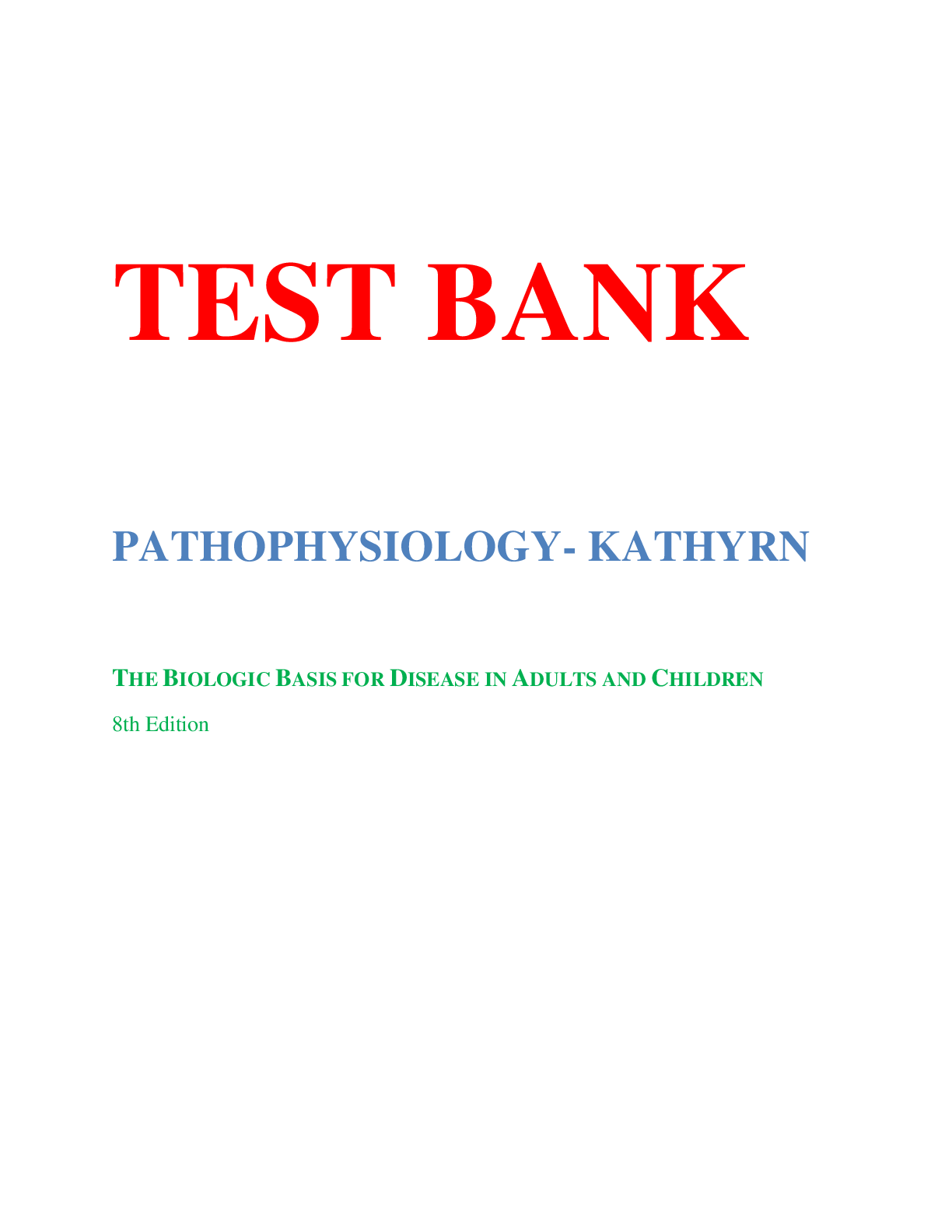
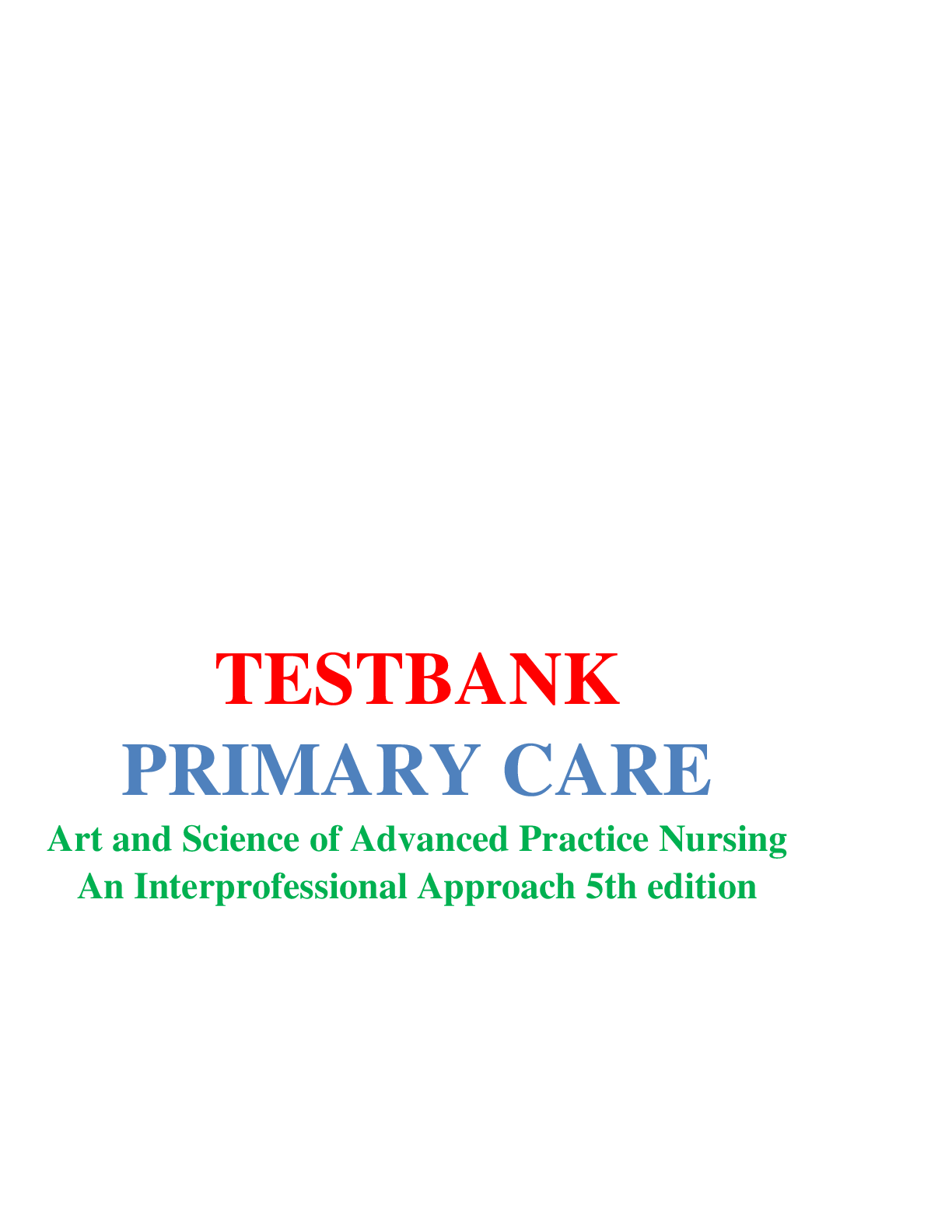
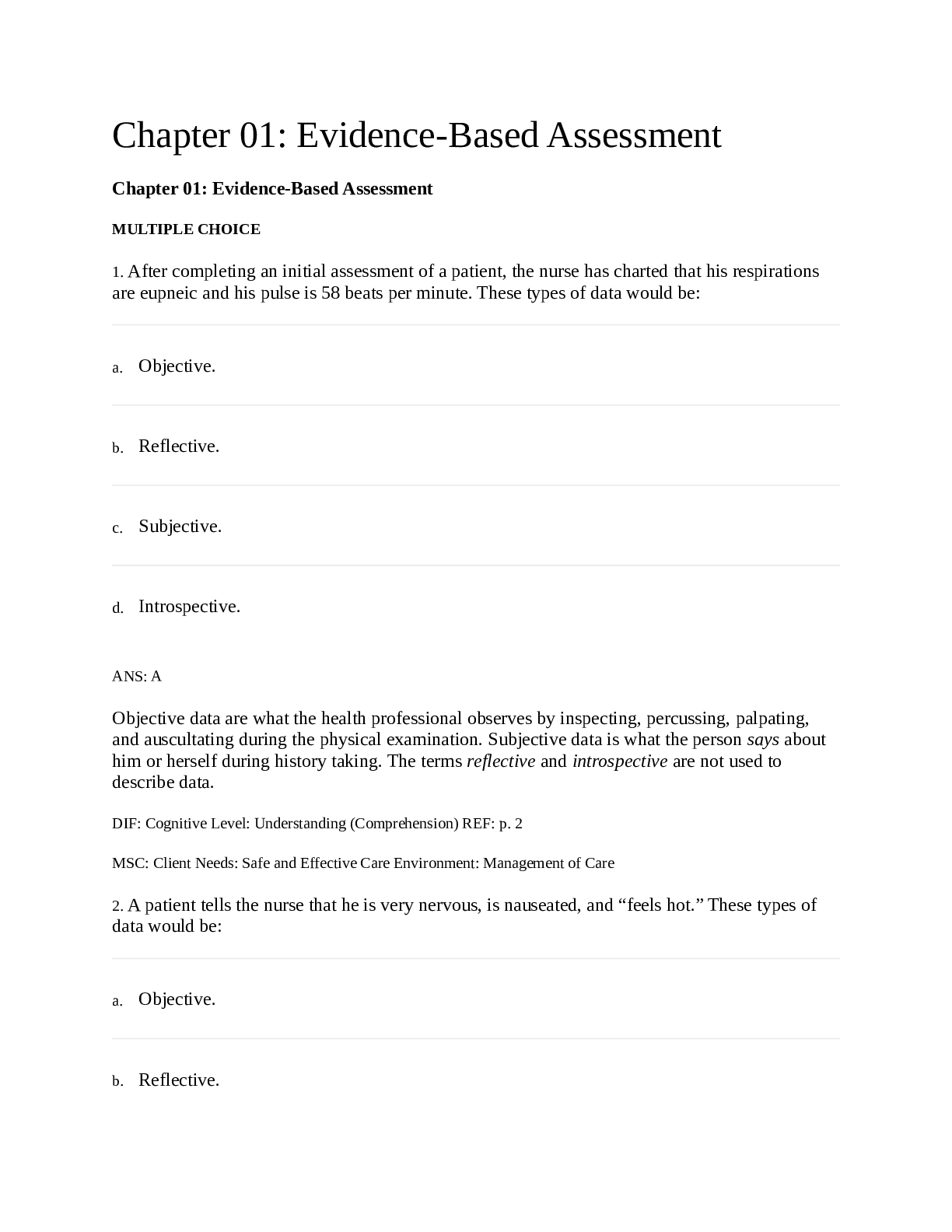
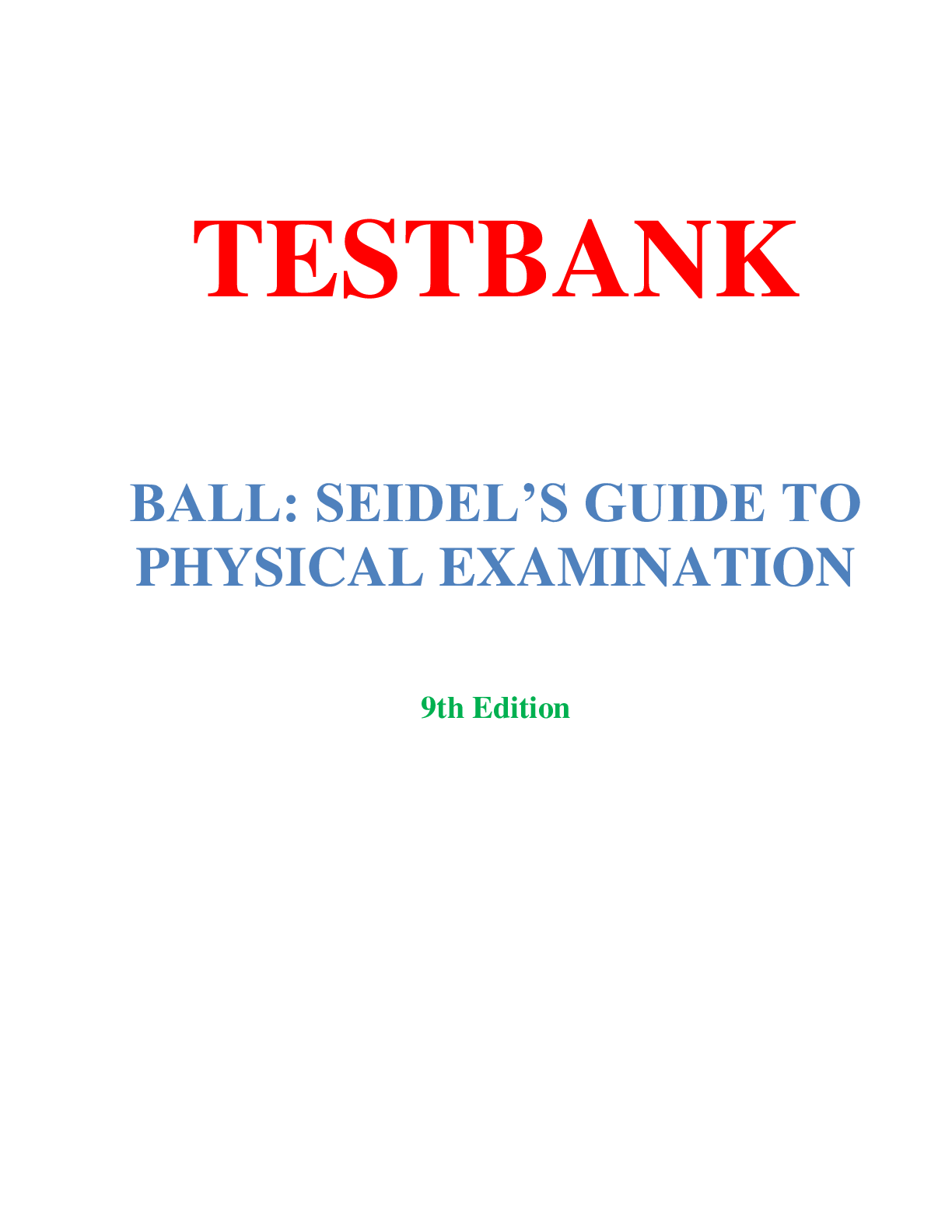
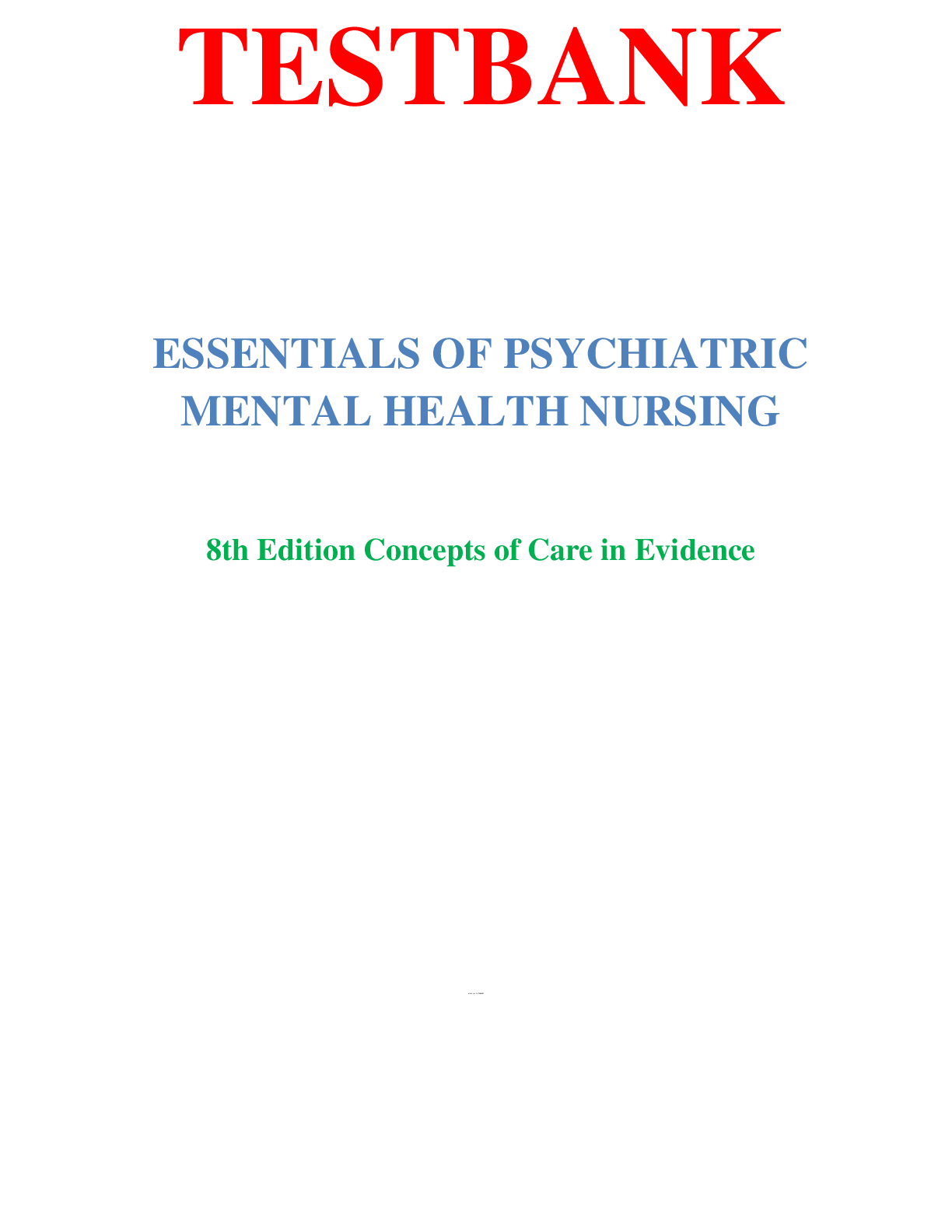
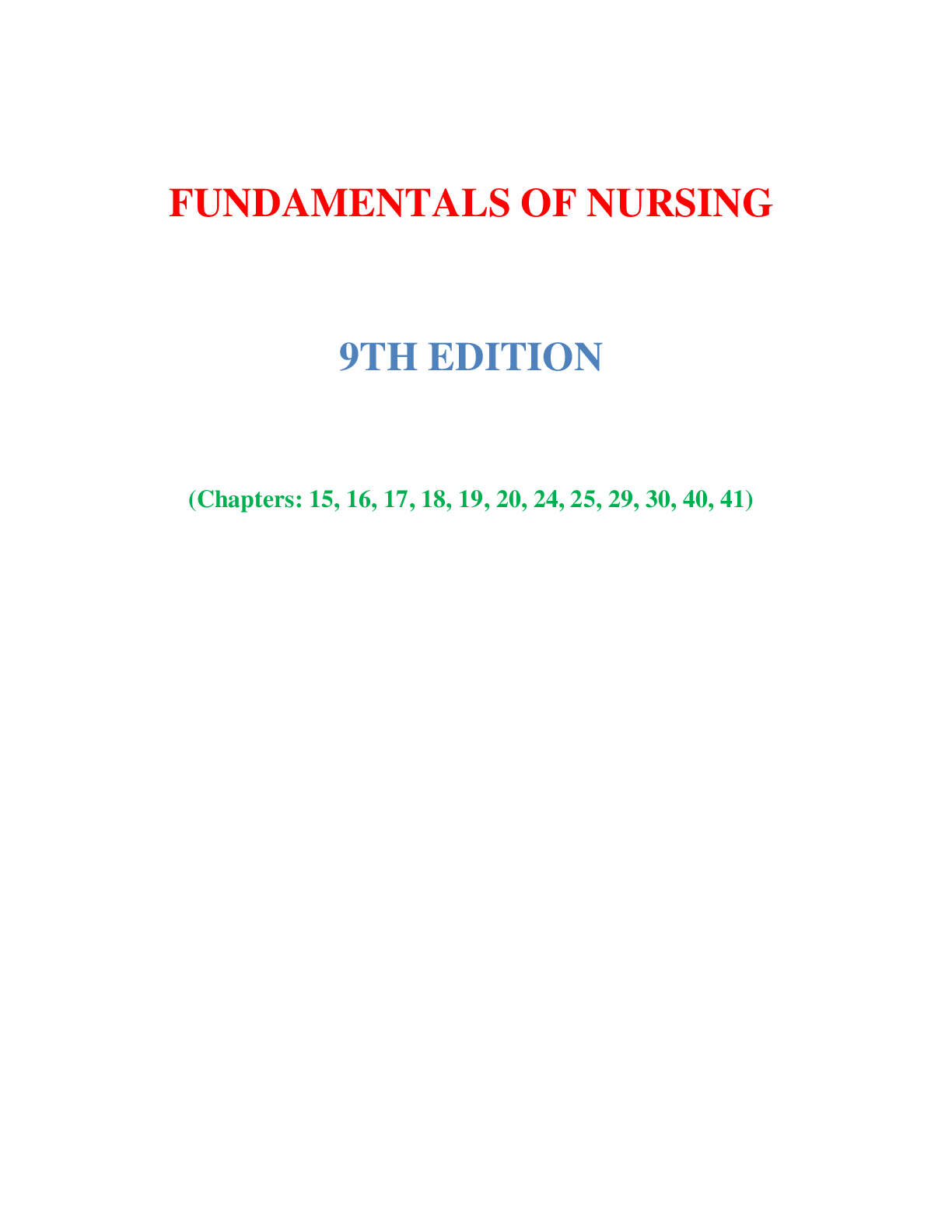
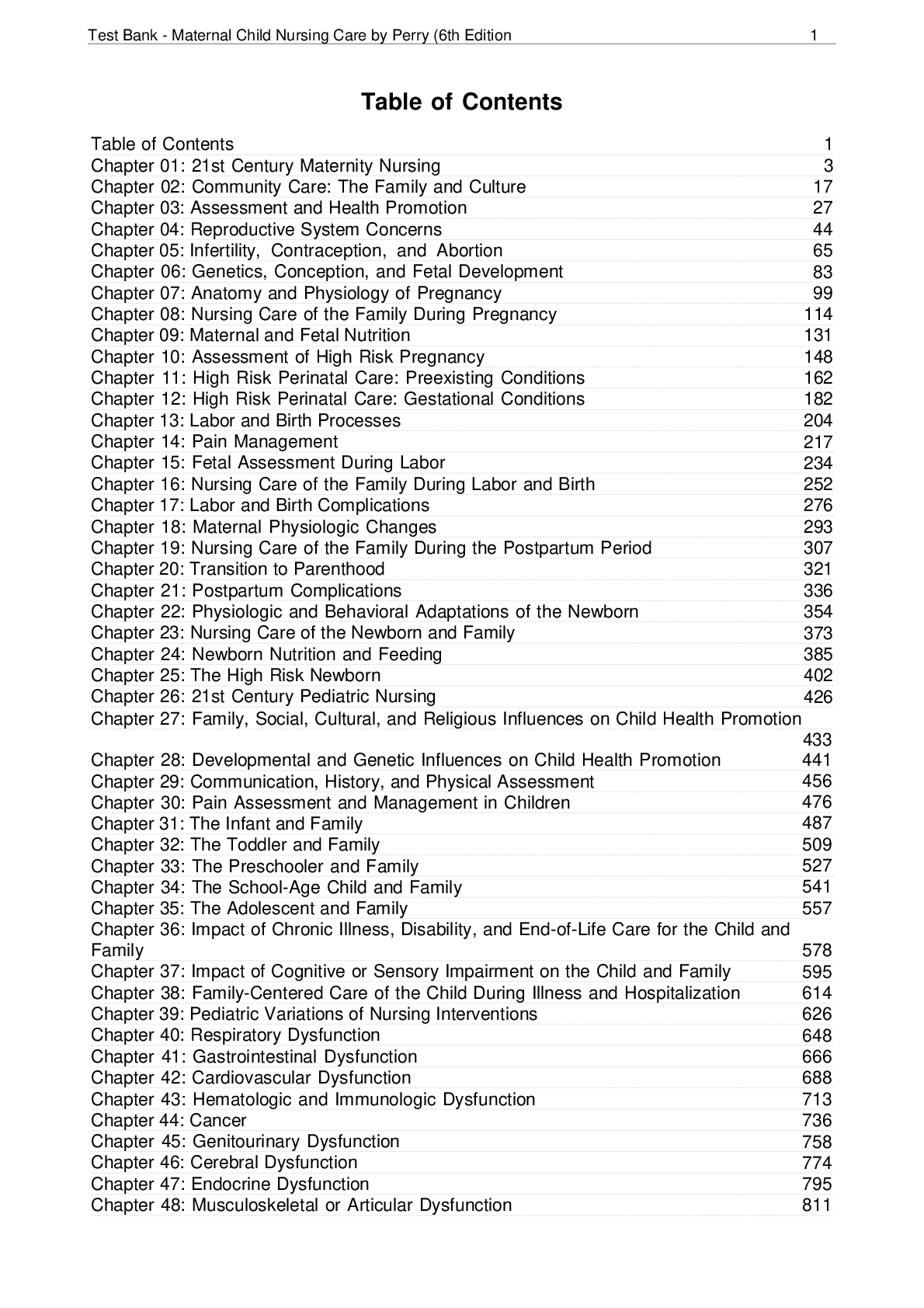








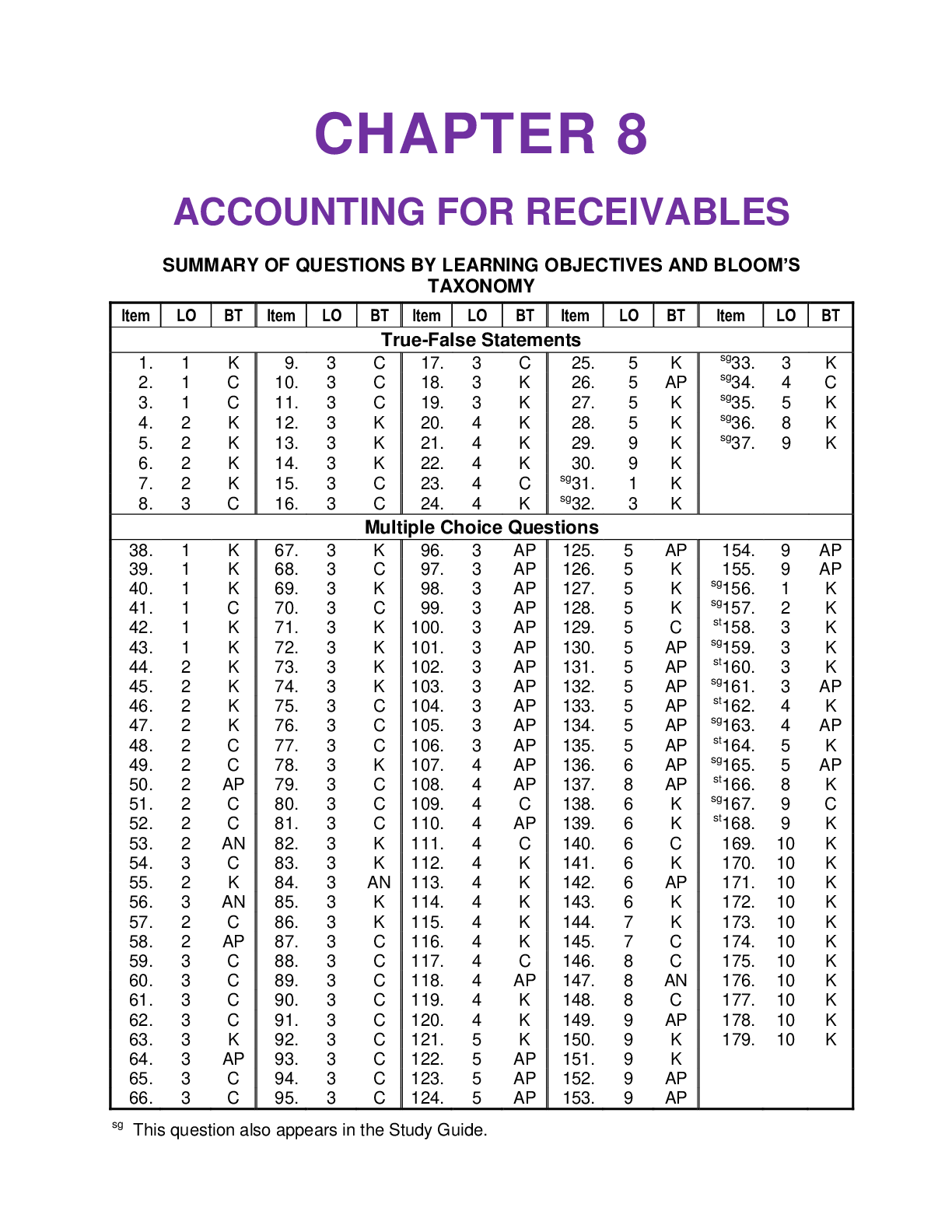

.png)
.png)
